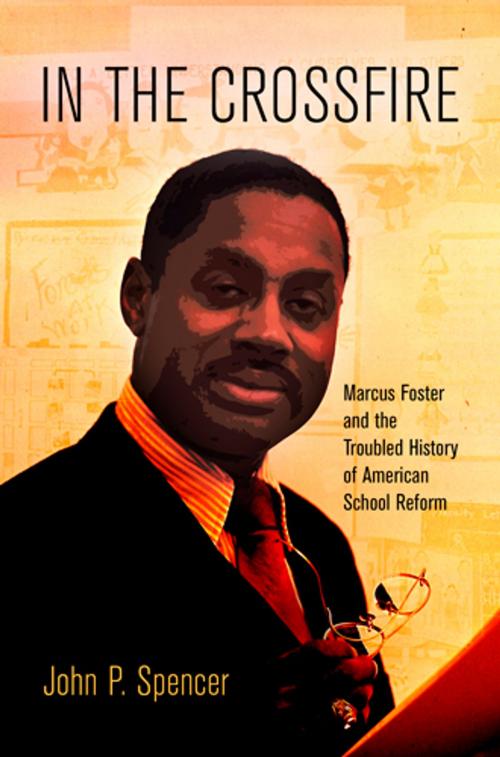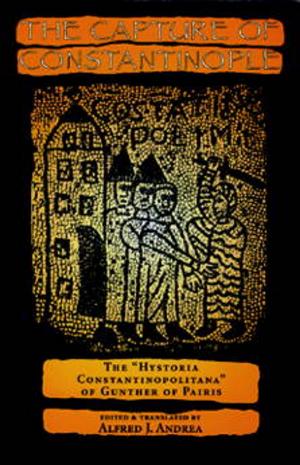In the Crossfire
Marcus Foster and the Troubled History of American School Reform
Biography & Memoir, Reference, Nonfiction, History, Americas, United States, 20th Century, Reference & Language, Education & Teaching| Author: | John P. Spencer | ISBN: | 9780812207668 |
| Publisher: | University of Pennsylvania Press, Inc. | Publication: | August 16, 2012 |
| Imprint: | University of Pennsylvania Press | Language: | English |
| Author: | John P. Spencer |
| ISBN: | 9780812207668 |
| Publisher: | University of Pennsylvania Press, Inc. |
| Publication: | August 16, 2012 |
| Imprint: | University of Pennsylvania Press |
| Language: | English |
As media reports declare crisis after crisis in public education, Americans find themselves hotly debating educational inequalities that seem to violate their nation's ideals. Why does success in school track so closely with race and socioeconomic status? How to end these apparent achievement gaps? In the Crossfire brings historical perspective to these debates by tracing the life and work of Marcus Foster, an African American educator who struggled to reform urban schools in the 1960s and early 1970s.
As a teacher, principal, and superintendent—first in his native Philadelphia and eventually in Oakland, California—Foster made success stories of urban schools and children whom others had dismissed as hopeless, only to be assassinated in 1973 by the previously unknown Symbionese Liberation Army in a bizarre protest against an allegedly racist school system. Foster's story encapsulates larger social changes in the decades after World War II: the great black migration from South to North, the civil rights movement, the decline of American cities, and the ever-increasing emphasis on education as a ticket to success. Well before the accountability agenda of the No Child Left Behind Act or the rise of charter schools, Americans came into sharp conflict over urban educational failure, with some blaming the schools and others pointing to conditions in homes and neighborhoods. By focusing on an educator who worked in the trenches and had a reputation for bridging divisions, In the Crossfire sheds new light on the continuing ideological debates over race, poverty, and achievement.
Foster charted a course between the extremes of demanding too little and expecting too much of schools as agents of opportunity in America. He called for accountability not only from educators but also from families, taxpayers, and political and economic institutions. His effort to mobilize multiple constituencies was a key to his success—and a lesson for educators and policymakers who would take aim at achievement gaps without addressing the full range of school and nonschool factors that create them.
As media reports declare crisis after crisis in public education, Americans find themselves hotly debating educational inequalities that seem to violate their nation's ideals. Why does success in school track so closely with race and socioeconomic status? How to end these apparent achievement gaps? In the Crossfire brings historical perspective to these debates by tracing the life and work of Marcus Foster, an African American educator who struggled to reform urban schools in the 1960s and early 1970s.
As a teacher, principal, and superintendent—first in his native Philadelphia and eventually in Oakland, California—Foster made success stories of urban schools and children whom others had dismissed as hopeless, only to be assassinated in 1973 by the previously unknown Symbionese Liberation Army in a bizarre protest against an allegedly racist school system. Foster's story encapsulates larger social changes in the decades after World War II: the great black migration from South to North, the civil rights movement, the decline of American cities, and the ever-increasing emphasis on education as a ticket to success. Well before the accountability agenda of the No Child Left Behind Act or the rise of charter schools, Americans came into sharp conflict over urban educational failure, with some blaming the schools and others pointing to conditions in homes and neighborhoods. By focusing on an educator who worked in the trenches and had a reputation for bridging divisions, In the Crossfire sheds new light on the continuing ideological debates over race, poverty, and achievement.
Foster charted a course between the extremes of demanding too little and expecting too much of schools as agents of opportunity in America. He called for accountability not only from educators but also from families, taxpayers, and political and economic institutions. His effort to mobilize multiple constituencies was a key to his success—and a lesson for educators and policymakers who would take aim at achievement gaps without addressing the full range of school and nonschool factors that create them.















